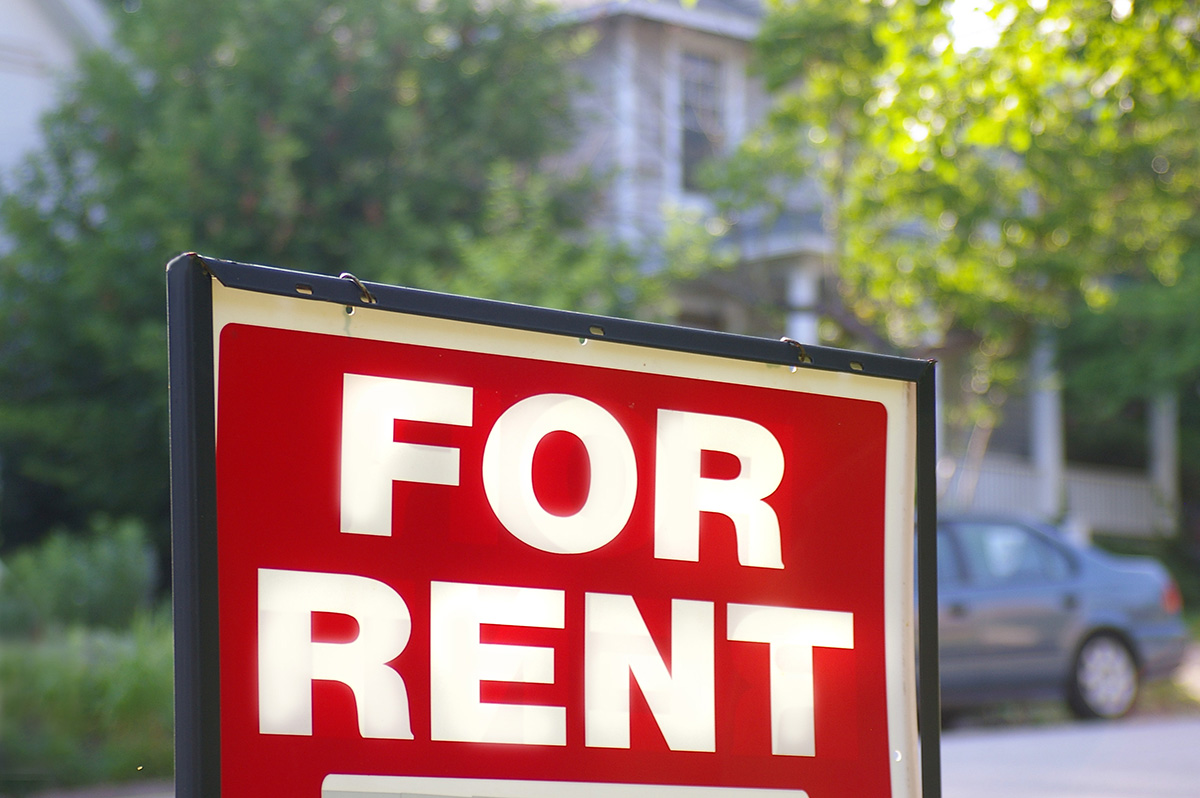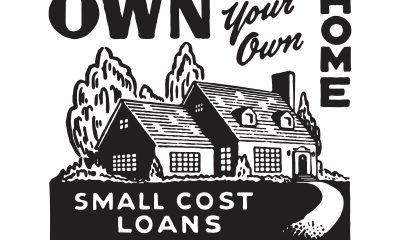Real Estate
Why picking the wrong agent can cost you money
There are many kinds of Realtors so be sure to find the right one

 Let’s face it, Realtors are portrayed pretty poorly in the media – typically as either a ditzy single mom, a pushy used car salesman type, or someone totally aloof in their own world (I’m looking at you, Phil Dunphy). These stereotypes used to really bother me, because they didn’t reflect the hard-working, dedicated professionals that I typically encounter. We work with some truly excellent agents that make me proud to be a Realtor.
Let’s face it, Realtors are portrayed pretty poorly in the media – typically as either a ditzy single mom, a pushy used car salesman type, or someone totally aloof in their own world (I’m looking at you, Phil Dunphy). These stereotypes used to really bother me, because they didn’t reflect the hard-working, dedicated professionals that I typically encounter. We work with some truly excellent agents that make me proud to be a Realtor.
In the last few weeks, the spring market has really started to heat up. Many newly minted “agents” are throwing their hat into the ring to make, what they think, is a quick buck. As a result, we’ve encountered some very interesting situations. Maybe it’s just that I am nine months pregnant and my patience is wearing thin, but I felt the need to educate the public on how picking the wrong agent can cost you. Here is a breakdown of some of the types of agents – and real life encounters we’ve had with them – that are the reason for our embarrassing portrayal in the media. So, please excuse me while I rant.
THE HARD-WORKING, COMPETENT AGENT. As I mentioned above, there are many, many excellent agents out there who go above and beyond for their clients and do a truly fabulous job. While most agents we deal with fall into this category, and I could go on and on about all of the wonderful aspects of those agents, this post is not about those Realtors.
THE LAZY AGENT. This type of agent is probably the most common offender in our profession. They got into real estate because it offered flexibility and they figured they didn’t have to work a 9-5 schedule. Turns out, they were right. Real estate is not 9-5, it is 24/7! As agents, we are available when our clients need us, when other agents need us, when appraisers need us, and when home inspectors are available. We not only must be available 9-5 for the banks and title companies we work with during the work week, but also when our clients are available — usually on the weekends and in the evenings.
Agents who thought they were in for a cushy schedule get a rude awakening. Most eventually adapt to their new “flexible” schedule. However, there are those that cut corners to stay in the industry and try to make it work – to the detriment of their clients and anyone trying to do business with those clients.
Frequently, this type of agent also doesn’t respond to questions or if they do, it takes them hours and the information is incomplete. They usually don’t respond on weekends or evenings and if they get back to you, they act as if it is an inconvenience. This sort of response can cause many buyers to simply move on if they are not getting the information quickly enough or are not satisfied with the information do receive. It’s the spring market — there are lots of listings and many of them have deadlines so buyers need to make quick decisions. Many buyers just say… “Next!”
THE PART-TIME AGENT. On the exact opposite end of the spectrum, there are many agents out there selling real estate “on the side.” They may just work part-time, or it could mean they have a full-time job and they sell real estate only on weekends and evenings. So, they are far from lazy and are often working very hard, but they can be tough to reach and often don’t know the ins and outs of the contract and general “norms” of the industry.
We aren’t knocking people trying to get started in the industry. It’s a tough job to get into as you often don’t get paid for several months (fun fact – we only get paid after a client goes to settlement – so by the time a new agent gets a client, finds them a property or a buyer for their home and then goes to settlement, it’s often six months before the agent gets a check for their work.)
I can understand that many people need to pay their bills. What I cannot understand is agents who will not answer their phones or emails from 9-5. It is completely unacceptable and an enormous disservice to their clients. If you have a listing and someone wants to show it, taking eight hours to get back to that agent might mean the buyers moved on to another property. That means a seller may have missed out on their buyer. If you’re a buyer, same deal. You might have just lost the opportunity to see a hot new listing that could now be under contract.
THE INSINCERE AGENT. Worse than the lazy agent is the insincere agent. Luckily, we don’t come across this type of agent very often. The insincere agent will tell you there is another offer on a property to try to get your clients to improve their offer when in reality, the other offer doesn’t exist. Or, they might selectively choose which of your questions to answer, not replying to you if they answer is something you won’t like. We reserve most of our venom for this type of agent.
THE NON-REALTOR AGENT. Most people don’t know there is a difference between a Realtor and a real estate agent. All Realtors are real estate agents but not all real estate agents are Realtors. Being a Realtor is an additional certification or membership that a real estate agent can obtain. Becoming a Realtor means that, among other things, you must adhere to the Realtors’ code of ethics. This is an important differentiating factor because it holds Realtors responsible for not lying to their clients or fellow agents. If they do, they could be fined and put their license in jeopardy.
THE INEXPERIENCED OR JUST FLAT OUT BAD AGENT. While this type of agent isn’t devious and is often well-meaning, it can be one of the most dangerous types of agents to work with as a client. The problem is – they don’t know what they don’t know. Even worse, their clients usually don’t know what their agent doesn’t know.
We once had an agent tell us that she and her client are not currently on speaking terms so she couldn’t get back to us on our offer. I mean, where to even begin!? Long story short, we moved on. That house is still on the market and to be honest, I would be shocked if it sold anytime soon.
Another agent recently told us proudly that they will turn away any offer that is not full price. This property was priced significantly higher than the comps. It, too, is still on the market. Granted, this agent’s client should take a lot of the blame for this, but the agent shouldn’t get a free pass.
Part of our job as Realtors is to educate our clients into the appropriate pricing for the property and at least encourage a “conversation” between buyer and seller through counter-offering.
Even if an offer starts out low, many times the seller can still get the buyer up to a price that is acceptable with a few rounds of countering The fact is, once a buyer is mentally invested in a property, they often will come up higher than they originally anticipated. But, you won’t know this as a seller unless you engage them with a counter. It is highly ill advised to reject any offer, no matter how low it is. We had a listing where the original offer was over $100,000 under the list price – we ended up ratifying a contract on the property at a price that was significantly higher than the first offer and perfectly acceptable to both buyer and seller.
Sometimes, the agent doesn’t even know how to put together an offer and we’ve had to draft the offer for their client – or re-write it completely. An agent who recently wrote an offer on one of our listings did not know he needed to include a certain contingency that his client definitely required. We nicely let him know that he probably meant to include it. Omitting this contingency could have been a major issue for his client.
Another example of how an inexperienced agent can blow a deal is by not understanding the “norms” of how an offer process works or not taking the time to find out how an agent is handling a multiple offer situation. If the listing agent doesn’t set an appropriate deadline, or doesn’t get back to buyer agents, buyers agents won’t know how to proceed.
As a result, a seller could miss out on additional offers that would have escalated in price, leaving tens of thousands of dollars on the table for the seller.
We had a recent situation where a client was ready to accept a full price offer on their property over the weekend. However, we could tell based on the interest we were getting that by waiting until Monday and setting a deadline time that all agents were made aware of, that they would get more money. By waiting, we were able to get them an additional $30,000 with no home inspection negotiation (saving them from having to make repairs) and no appraisal contingency. Knowing the pulse of the market, we got a much better deal for our client.
Similarly, if a buyer agent doesn’t know enough to let the listing agent know that their clients have interest, they could miss out on the property. Time and again, we’ve had buyer agents call us weeks after our listings go under contract letting us know that their clients were interested, even though they had never been in touch. Inexperienced buyer agents can be detrimental if they don’t know how to find out about properties before they hit the active marker, to pull the appropriate comps, to best present the offer in multiple offer scenarios, or which types of inspections to schedule. There is a lot that an inexperienced agent just doesn’t know.
THE BOTTOM LINE. Picking a real estate agent is a major decision. It can directly affect both your bottom line and your ability to buy or sell a house in the time and manner that works for you. As we’ve shown, there are a wide variety of agents in the business. Most are wonderful to work with, but there are still many – and especially in the spring market – that put their clients in tough situations that could cost them money. Often, the client doesn’t even know it. It’s critical to carefully think through who you are working with to buy or sell.
Allison Goodhart DuShuttle is lead agent for The Goodhart Group, Alexandria’s and McEnearney Associates’ top producing real estate team. In 2015, she was nationally recognized by Realtor Magazine, being named to its “30 Under 30” club. Allison can be reached at 703-362-3221 or [email protected].
Real Estate
Signs you’ve outgrown self-management of your D.C. rental
Keeping up with local regulations is a struggle

According to rental market statistics from RentCafe, Washington, D.C., remains at the top of the most popular cities for rental properties. With a strong rental market and a growing population, success should be second nature to real estate investors and rental property owners in this area.
As a self-manager of your own rental, if you’re not enjoying the profitability and the earnings that this market can provide, it might be time to look for professional management.
There are certain signs that show property owners have outgrown self-management. We’re exploring those today, and inviting DIY landlords to consider the benefits that come with a partnership with a professional property management company in Washington, D.C.
Washington, D.C., is known for having a complex and ever-changing regulatory environment. There are strict tenant rights, rent control laws, and specific rules related to property maintenance such as mold, lead based paint hazards, among others. The Rental Housing Act of 1985 is strictly enforced, and under this program, there are specific rules regarding rent adjustments, dispute resolution, and eviction protections.
Fair housing laws need complete compliance, security deposits have strict timelines, and habitability standards are in place to ensure tenants are living in a home that’s safe and well-maintained.
Staying on top of these rules can be time-consuming and difficult. Violating even a small regulation unintentionally can result in fines or legal action. It’s critical to stay compliant, and if you find yourself struggling to keep up with the evolving laws and regulations, it’s a clear sign that you may need professional help. Property managers can reduce the risk and liability of making a legal mistake.
Financial Returns are Underwhelming
A lot of self-managing landlords choose to lease, manage, and maintain their own properties because they don’t want to pay a management fee. We get it. Keeping more of your money seems like the best way to increase profitability.
But, here’s the reality of it: property managers can help you earn more and spend less on your investment, increasing your earnings and your ROI. In fact, a good property manager can often earn enough additional net revenue for the owner to pay for that fee over a year.
Property managers are experienced at maximizing the financial performance of rental properties. We can help:
- Optimize rental income
- Reduce vacancy rates
- Lower maintenance costs through established vendor relationships
- Recommend improvements for higher values
Ultimately, a good property manager will ensure that your property is being run efficiently. We will use our expertise to ensure your property is earning what it should.
Maintenance and Repairs Are Taking Up Too Much Time
Maintenance challenges are not unique to self-managing rental property owners. We deal with them, too, as professional property managers. We respond to plumbing issues and appliance malfunctions, we take calls in the middle of the night when a sewer is backing up, and we work hard to protect properties against deterioration and general wear and tear.
This can be overwhelming, especially when it comes to finding vendors and service professionals that are both affordable and provide quality service. Plumbers, electricians, HVAC technicians, and even landscapers and cleaners are in high demand in Washington, D.C. But maintenance at your rental property cannot wait. It’s essential to the value and condition of your investment as well as to the product you are selling.
It’s time to work with a professional property manager if you’re having trouble finding vendors or if you’re struggling to keep up with maintenance requests. We have systems for emergency responses, routine repairs, and preventative services.
Tenant Screening Is Becoming More Difficult and Time-Consuming
Finding good tenants is one of the most critical aspects of rental property management. But in our home of Washington, D.C. we have one of the most regulated rental markets in the country. The tenant screening process has become increasingly complex, highly restricted, and time-intensive.
Many property owners are surprised to learn that there are more limitations than ever on what can be screened, what information can be used in making a decision whom to rent to, and how screening decisions must be documented. Federal and local laws tightly regulate the use of credit histories, criminal background records, income verification, and even eviction records. Staying compliant is not optional. Failure to follow these rules can open the door to discrimination claims, administrative complaints, substantial fines, or even lawsuits.
That’s why rushing or relying on outdated methods can easily result in selecting the wrong resident or worse, unintentionally violating DC’s Human Rights Act or federal Fair Housing laws.
Problematic tenants often become evident only after move-in: lease breaks, chronic late payments, noise complaints, and property damage. When these patterns appear repeatedly, it is often a sign that the screening process is not sufficiently structured.
Why Professional Screening Matters
Professional property managers have systems in place to perform thorough, legally compliant screening while avoiding oversteps that could violate the regulations. Professional property managers use trusted screening platforms and follow written processes that keep owners protected and ensure fairness for applicants.
Columbia Property Management’s screening process includes:
- Credit Report Review
Evaluating credit patterns, payment reliability, and debt load while complying with restrictions on how data can be used. - Rental History Verification
Contacting prior landlords and reviewing national eviction databases—keeping in mind that some jurisdictions like the District of Columbia limit how far back eviction data can be seen, must less considered. - Background ChecksReviewing public records in a manner consistent with DC’s Human Rights Act and federal guidance on criminal history usage. Not all criminal records can be considered in rental decisions, and timing rules often apply.
- Income & Employment Verification
Confirming applicants can afford the rent and other monthly expenses based on their income, without ruling out certain income in a discriminatory way (e.g., vouchers, subsidies, or lawful alternative forms of income). There are many intentional steps conducted by professional property managers under a framework that ensures decisions are based on objective criteria, applied consistently, and fully aligned with the latest federal and DC regulations.
Your Property Is Sitting Vacant for Longer Periods
While current rental market dynamics are starting to show the effects of federal workforce layoffs and the worsening local economy, the vacancy rate in Washington, D.C., is relatively low, compared to the national average. According to a news report from WTOP, the local vacancy rate is just 6%, and there are an average of seven applications for every available rental unit.
A vacant rental property can quickly become a financial drain. Whether you own a condo near Dupont Circle or a single-family home in one of Capitol Hill’s neighborhoods, every day your property sits empty means lost income. While the D.C. market is generally competitive, the reality is that there are always fluctuations in demand based on seasons, neighborhood desirability, and even economic trends.
If you’re struggling to fill your rental quickly, it might be a sign that you need to re-evaluate your approach. An experienced property management company has a marketing strategy in place to keep vacancy periods as short as possible. From professional photos and listings to leveraging established networks, they can help ensure that your property is rented quickly, reducing the amount of time it sits vacant.
While managing a rental property in Washington, D.C., can be rewarding, it’s also challenging. As your property portfolio grows or the demands of your life or the demands of being a landlord increase, it’s helpful to recognize when it’s time to step back and let a professional handle the day-to-day tasks.
From navigating complex local regulations to ensuring your property remains occupied and well-maintained, there are many reasons why rental property owners in Washington, D.C., outgrow self-management. If any of these signs resonate with you, consider partnering with a property management company like ours to ensure that your rental investment continues to thrive without the stress and burnout of self-management.
We’d love to be your Washington, D.C., property management partner and resource. Please contact us at 888-857-6594 or ColumbiaPM.com
Scott Bloom is owner and Senior Property Manager, Columbia Property Management.
Real Estate
Tips for LGBTQ buyers, sellers during holidays
A powerful and overlooked window for real estate transactions

The holiday season is a magical time, filled with celebration, travel, connection, and reflection. It also happens to be a powerful — and often overlooked — window for both buying and selling real estate. For members of the LGBTQ+ community, shopping for a new home or preparing to list a property during the holidays comes with opportunities, challenges, and important considerations that deserve thoughtful attention.
Whether you’re preparing to make a move as a same-sex couple, searching for safe and affirming neighborhoods, or hoping to secure the best possible price for your home sale before the new year, the holidays can offer unique advantages. With an inclusive approach, LGBTQ+ friendly resources, and the right professional guidance, this season can be a strategic and rewarding time to take your next real estate step.
Below are actionable tips, insights, and resources specifically tailored to LGBTQ+ home buyers and sellers navigating the holiday season.
Why the Holidays Can Be the Right Time
Lower Competition & Motivated Sellers
Because so many people put their real estate plans on pause during November and December, LGBTQ+ home buyers may see lower competition, fewer bidding wars, and sellers who are eager to close before January. This can bring real advantages for first-time gay home buyers or same-sex couples seeking more favorable negotiating terms.
Buyers Are More Serious
If you’re selling your home as an LGBTQ+ individual, remember: holiday buyers tend to be more intentional, financially prepared, and timeline-driven. This can make the sale process smoother.
Holiday Appeal Helps Homes Show Better
Warm lighting, seasonal décor, and neighborhood festivities can enhance curb appeal and emotional impact — which can be especially valuable when selling your home.
Tip #1: Choose LGBTQ-Friendly Representation
Above all else: work with a professional who understands the LGBTQ+ community and the unique concerns LGBTQ+ clients have.
This means choosing:
- a gay realtor
- a lesbian realtor
- an LGBTQ+ friendly real estate agent
Agents who are part of, or deeply familiar with, the LGBTQ+ community can make a tremendous difference in safety, comfort, and confidence throughout the transaction.
For more than 30 years, GayRealEstate.com has been the trusted leader in LGBTQ+ real estate, providing LGBTQ+ home buyers and sellers access to:
- verified LGBTQ+ real estate agents
- same-sex couple home buying experts
- LGBTQ+ friendly realtors near you
- agents experienced in discrimination-related protections
- LGBTQ+ relocation specialists
Whether you’re buying or selling, this starts you on the right path.
Tip #2: Focus on LGBTQ-Friendly Neighborhoods
If you’re buying a home during the holidays, make researching neighborhoods a top priority.
Look for areas known for:
- Inclusion & diversity
- Active local LGBTQ+ groups
- Gay-friendly businesses
- Visible LGBTQ+ community presence
- Supportive schools & services
- Pride events & alliances
Searching online helps — but talking with an LGBTQ+ friendly realtor who knows these neighborhoods firsthand is invaluable.
Also search:
- LGBTQ+ crime statistics
- local anti-discrimination policies
- protections against housing discrimination
- hate crime data
- political climate
- HOA regulations
Your home should feel safe year-round, not just festive in December.
Tip #3: Know Your Legal Protections
Housing discrimination still exists — and LGBTQ+ home buyers and sellers must remain vigilant.
While federal protections exist through the Fair Housing Act (as interpreted to include sexual orientation and gender identity), not all states provide equal protection.
Know your rights around:
- Mortgage discrimination
- Rental screening discrimination
- Sellers refusing offers from LGBTQ+ buyers
- HOA discrimination
- Harassment after move-in
Your agent should be able to assist — but GayRealEstate.com also offers educational guidance and resources for navigating LGBTQ+ legal protections in real estate
Tip #4: Navigate the Emotional Side
For LGBTQ+ buyers and sellers, the holidays can stir up complex feelings:
- family dynamics
- financial pressure
- expectations around marriage or partnership
- relocation stress
- memories tied to a home
Be patient with yourself.
Buying or selling a home is life-changing — honor the emotional journey as much as the financial one.
Tip #5: Take Advantage of Holiday Cost Savings
Buying?
- Lower interest rates may appear around December
- Contractors often discount home inspections & repairs this time of year
- Movers run holiday promotions
Selling?
- Minor seasonal upgrades help tremendously:
- warm lighting
- new evergreen planters
- festive front door accents
- Be careful not to over-decorate — buyers need to see the space clearly
And yes — holiday cookies help.
Tip #6: If You’re Relocating — Plan Ahead
Many LGBTQ+ buyers relocate during the holidays to:
- be closer to family
- move in with a partner
- begin a new job in the new year
If you’re relocating as an LGBTQ+ couple or family:
- research local LGBTQ+ resources
- connect with local LGBTQ+ organizations
- ask your gay real estate agent about local LGBTQ+ clubs, groups, and services
- evaluate long-term safety for LGBTQ+ families
Plan early — December moves get booked fast.
Tip #7: Use Trusted LGBTQ Real Estate Resources
The most important resource of all:
GayRealEstate.com — the #1 dedicated LGBTQ+ real estate resource for over 30 years.
On GayRealEstate.com, you can find:
- LGBTQ+ friendly real estate agents nationwide
- Verified gay and lesbian Realtors
- LGBTQ+ real estate market information
- Same-sex couple home buying guidance
- LGBTQ+ real estate services
- Gay and lesbian friendly neighborhoods
- Relocation tools
- LGBTQ+ home buyer & seller education
No other site offers this level of specialization, expertise, or community connection.
The holidays are more than just a season of celebration — they’re also a meaningful opportunity for LGBTQ+ home ownership, real estate transitions, and new beginnings. Whether you’re a first-time gay home buyer, a same-sex couple selling a home, or an LGBTQ+ family preparing to relocate, you deserve an experience grounded in respect, inclusion, and safety.
With the right preparation — and the right LGBTQ+ friendly real estate agent — your journey can be rewarding, affirming, and filled with new possibilities for the year ahead.
To find an LGBTQ+ real estate agent who understands your needs, visit GayRealEstate.com, the trusted leader in LGBTQ+ real estate services, resources, and representation for over three decades.
Scott Helms is president and owner of Gayrealestate.com.
Real Estate
In real estate, it’s déjà vu all over again
1970s and ‘80s volatility led to creative financing options

In the 1970s and 1980s, mortgage interest rates climbed into the double digits and peaked above 18%. With rates like that, you needed more than a steady job and a down payment to buy a home — you needed creative financing ideas.
Today’s market challenges may look different, but the response has been surprisingly familiar: unusual financing methods are making a comeback, along with some new ones that didn’t exist decades ago. Here is a brief overview of the most popular tools from that era.
Assumable Mortgages were available with FHA, VA, and USDA loans and, until 1982, even Conventional mortgages. They allowed a buyer to take over the seller’s existing mortgage, including its interest rate, rather than getting a brand-new loan, while compensating the seller for the difference between the assumed loan balance and the contract price.
Often, a seller played a substantial role in a purchase. With Seller Financing (Owner Carry) the seller became the bank, letting the buyer make payments directly to them instead of to a traditional lender.
One variation on Seller Financing was the Land Contract. The seller was still the lender, but the buyer made loan payments to the seller, who then paid his own mortgage and pocketed the difference. The buyer would receive equitable title (the right to use and occupy the property), while the seller kept the title or deed until the contract was paid off or the property sold.
With Wraparound Mortgages, the seller created a new, larger loan for the buyer that “wrapped” around the existing mortgage at an agreed-upon rate. The buyer would then pay the seller, who would continue making mortgage payments on the existing balance, collecting payments and pocketing the spread. Whether title conveyed to the buyer or remained with the seller was negotiated between the parties.
Unlike an assumption, when buying a home Subject To an existing mortgage, the buyer took title to the property and agreed to pay the seller’s mortgage directly to the lender plus any equity to the seller; the mortgage stayed in the seller’s name. Now, most mortgages have a Due on Sale clause that prohibits this kind of transaction without the expressed consent of the lender.
Rent-to-Own was also a popular way to get into a home. While a potential buyer rented a property, the seller would offer an option to purchase for a set amount to be exercised at a later date (lease option) or allow a portion of the rent collected to be considered as a downpayment once accrued (lease purchase).
Graduated Payment Mortgage (GPM) loans were authorized by the banking industry in the mid-1970s and Adjustable Rate Mortgages (ARM) surfaced in the early 1980s. Both featured low initial payments that gradually increased over time.
With the GPM, although lower than market to start, the interest rate was fixed and payment increases were scheduled. A buyer could rely on the payment amount and save accordingly.
ARMs, on the other hand, had interest rates that could change based on the market index, with less predictability and a higher risk of rate shocks, as we saw during the Great Recession from 2007-2009.
While mortgage rates today aren’t anywhere near the extremes of the 1980s, buyers still face a tough environment: higher prices, limited inventory, and stricter lending standards. That combination has pushed people to explore tried and true alternatives and add new ones.
Assumable mortgages and ARMs are on the table again and seller financing is still worth exploring. Just last week, I overheard a colleague asking about a land contract.
Lenders are beginning to use Alternative Credit Evaluation indicators, like rental payment history or bank cash-flow analysis, to assess borrower strength when making mortgage loan decisions.
There are Shared Equity Programs, where companies or nonprofits contribute part of a down payment in exchange for a share of the home’s future appreciation. With Crowdfunding Platforms, investors pool money online to finance real estate purchases or developments.
Another unconventional idea being debated today is the 50-year mortgage, designed to help buyers manage high home prices. Such a mortgage would have a 50-year repayment term, rather than the standard 30 years, lowering monthly payments by stretching them over a longer period.
Supporters argue that a 50-year mortgage could make monthly payments significantly more affordable for first-time buyers who feel priced out of the market. Critics, however, warn that while the monthly payment may be lower, the lifetime interest cost would be much higher.
What ties the past and present together is necessity. As long as affordability remains strained, creative financing – old and new – will continue to shape the way real estate gets bought and sold. As with everything real estate, my question will always be, “What’s next?”
Valerie M. Blake is a licensed Associate Broker in D.C., Maryland, and Virginia with RLAH @properties. Call or text her at 202-246-8602, email her at [email protected] or follow her on Facebook at TheRealst8ofAffairs.




















